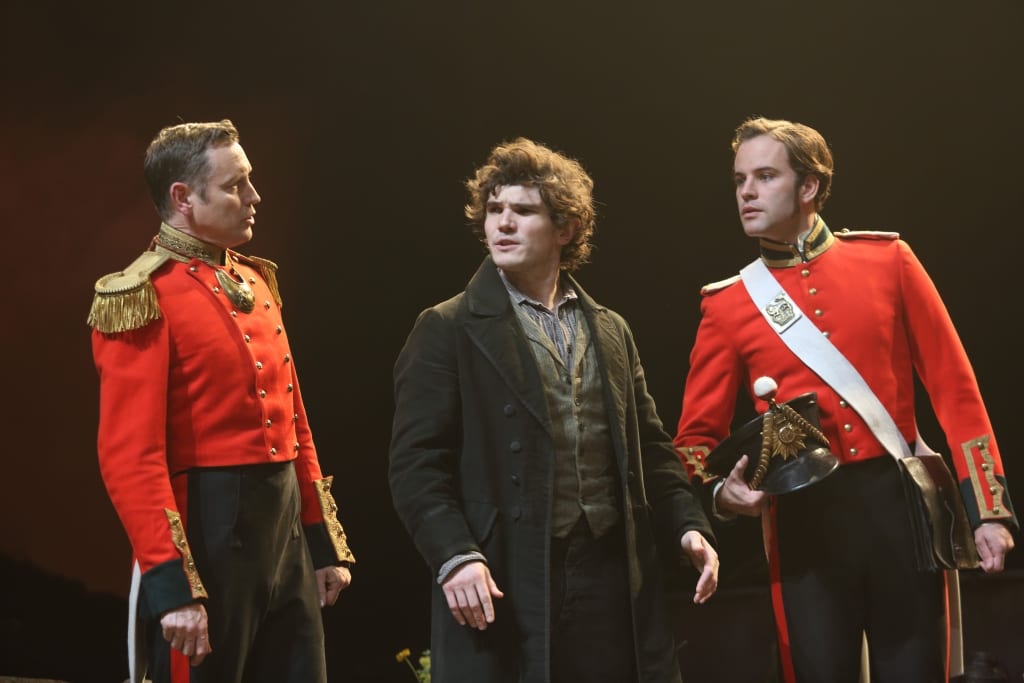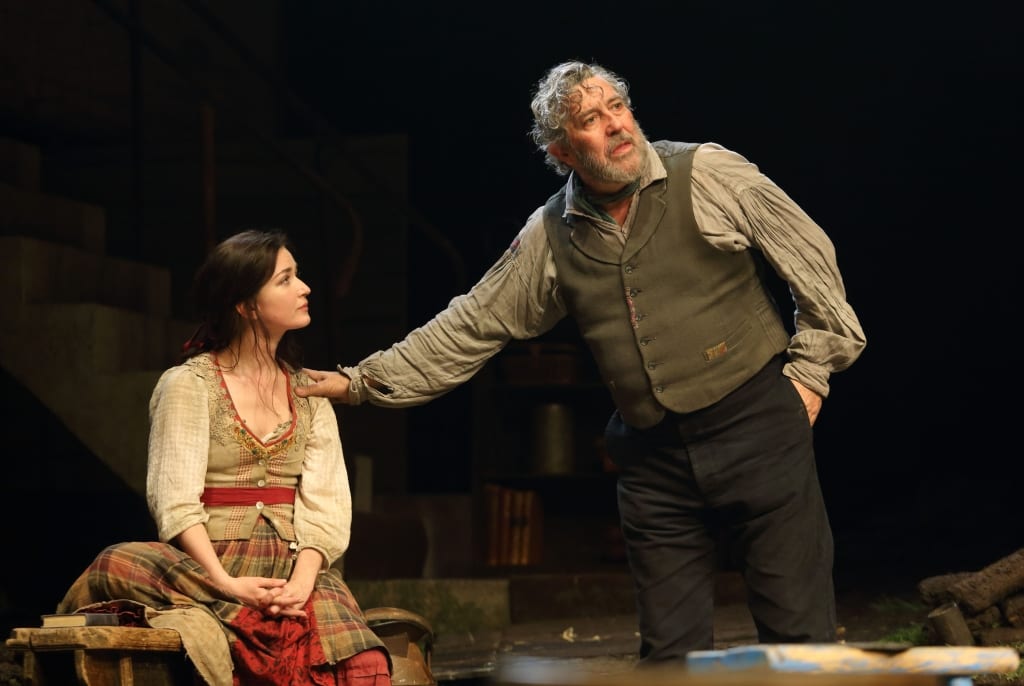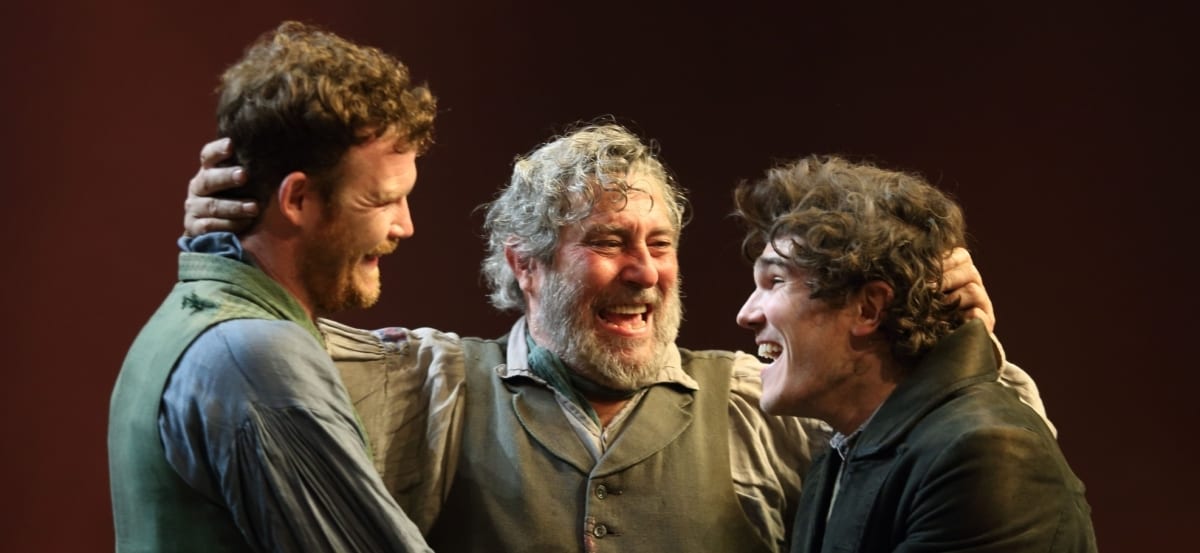Translations is a poignant play about cultural divides. It is set in rural Ireland during the 1830s and focuses on the ambitious attempt of English forces to map Ireland through the Ordnance Survey. Mapping serves as a method of control for the colonisers: the English use it to delineate, rename and reconstitute the world according to their instruments and language. The disfiguration of native culture by the invaders in this play is a cause for self-reflection, reminding us of who the true brutes are.
Translations starts with an endearing rustic scene. Manus (Seamus O’Hara) tutors the wordless Sarah (Liadán Dunlea) on how to speak a basic phrase – stating her own name. The quivering and distraught girl is in many ways an icon of the colonised Ireland: amongst her own kind people, she can be persuaded out of her shell, made to speak, but regresses into silence in the company of foreign thugs. Seamus portrays Manus as a conscientious teacher and Liadán portrays Sarah as a grateful tutee, joyously celebrating her own achievement of managing to utter short sentence. The pair establish a calm atmosphere for the play in the makeshift classroom they inhabit, however, we will soon see the happy flow of knowledge amongst friends rudely disturbed.

English and Irish are not the only distinct languages present in Translations. The elders of the play, Jimmy Jack Cassie (Dermot Crowley) and Hugh (Ciarán Hinds), exhibit an appreciation for the Classics. Dermot, a semi-coherent drunk sage, quotes Virgil and Ovid to his compatriots, but these poetic aphorisms fall on deaf ears – they are phrases from a dead language that holds only a passing curiosity for the younger Irish folk and then seem like inarticulate ramblings to the English invaders. Crowley and Hinds portray their characters as comic drunken fools, both liking a dram or five of moonshine, but also as zealous Irish Romantics; Hinds’s character particularly is a compelling defender of Irish history.
Owen (Fra Free) is the homebound son of Hugh who brings unwanted gifts to the table. Captain Lancey (Rufus Wright) and Lieutenant Yolland (Jack Bardoe) enter the stage like toy soldiers, bedecked in brightly-coloured military regalia, and immediately we can see kindness in Yolland that Lancey distinctly lacks. Free does an excellent job of portraying a young man keen to straddle the cultural divide, torn between loving his people and appeasing his English friends. Given that Ireland is no longer hermetically sealed, and the invading class see the natives as barbarians, Owen feels the burden of becoming a peace broker.

There’s a comedy in mistranslation in this play. Lancey performs a patronising routine explaining his duties to the Irish through mime. Marie (Judith Roddy) and Lieutenant struggle to communicate easily across the chasm of language. But there’s a real danger in this oil and water-type emulsion of languages. Owen and Yolland agonise over the naming of places: we begin to realise that cartography is no innocent task and that reducing the country down to a six-inches-to-the-mile representation is an exercise in imprisonment; the rich and varied human topography is in danger of being effaced by English ink.
Ciarán Hinds, reprising his role in this play, stands out as the frontier wise man, prone to bursts of intelligence but hampered by his ageing and apathy – he is the perfect depiction, against the English bulldozers, of the dying old religion of Ireland.

